Menu: Site Background | 3D Site Plan | Dive Video | Site Detail
This page provides more detail about the wreck of the Eagle at the Tearing Ledge. The numbers represent the annotations on the 3D site plan.
1. The Tearing Ledge rock
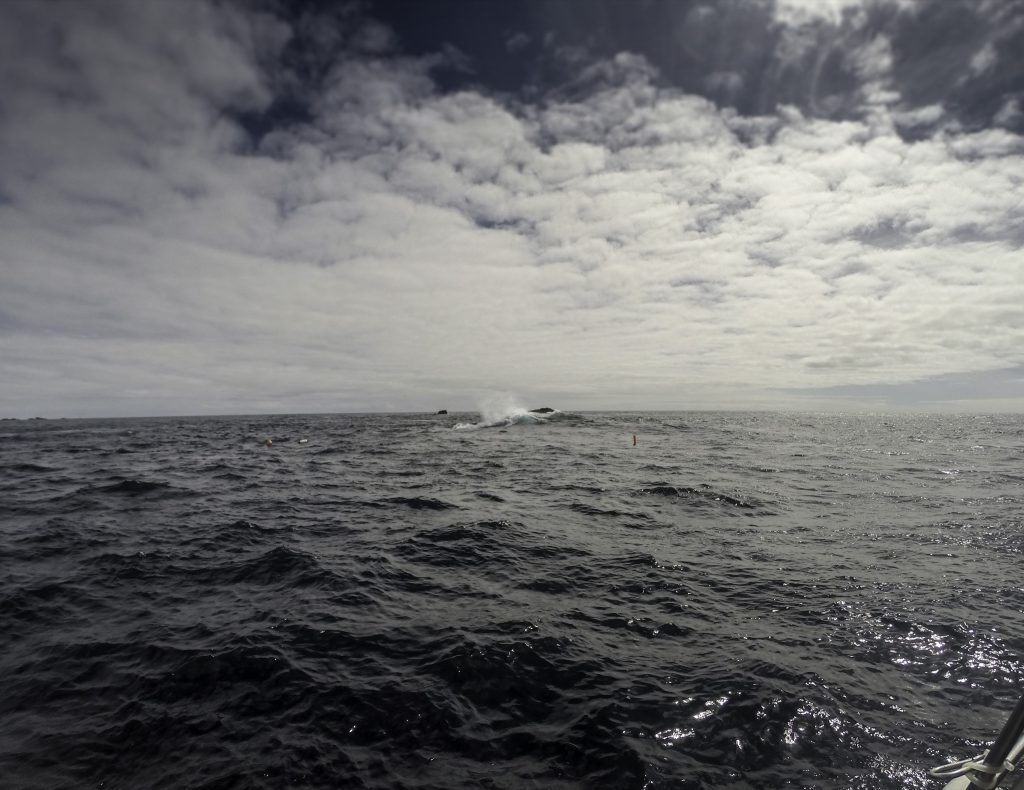
2. Bronze bell
The site was first discovered by divers working for Roland Morris in 1969. Excavation was undertaken by them in 1969 and 1970. They recovered a number of artefacts including a large bronze bell marked ‘1701’ and with a broad arrow. The bell is said to weigh 2 cwt (which is 224 lb or 101 kg). They also recovered gold and silver coins, gold rings and a navigation slate. The bell is now in the Isles of Scilly Museum but the current location of the other items is not known.
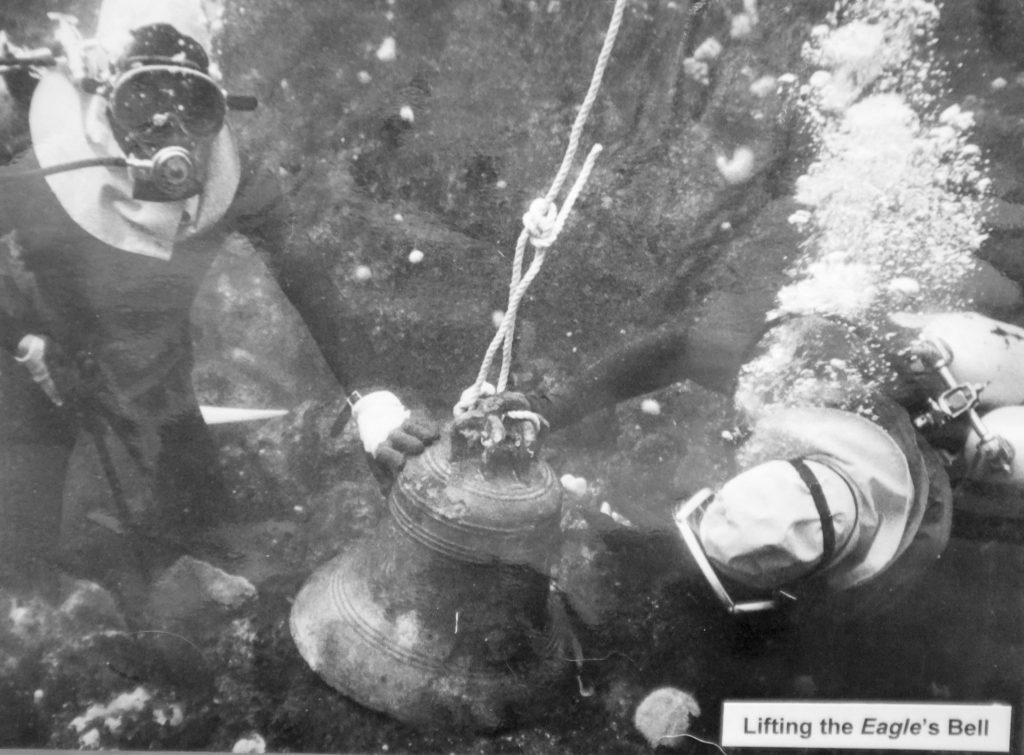
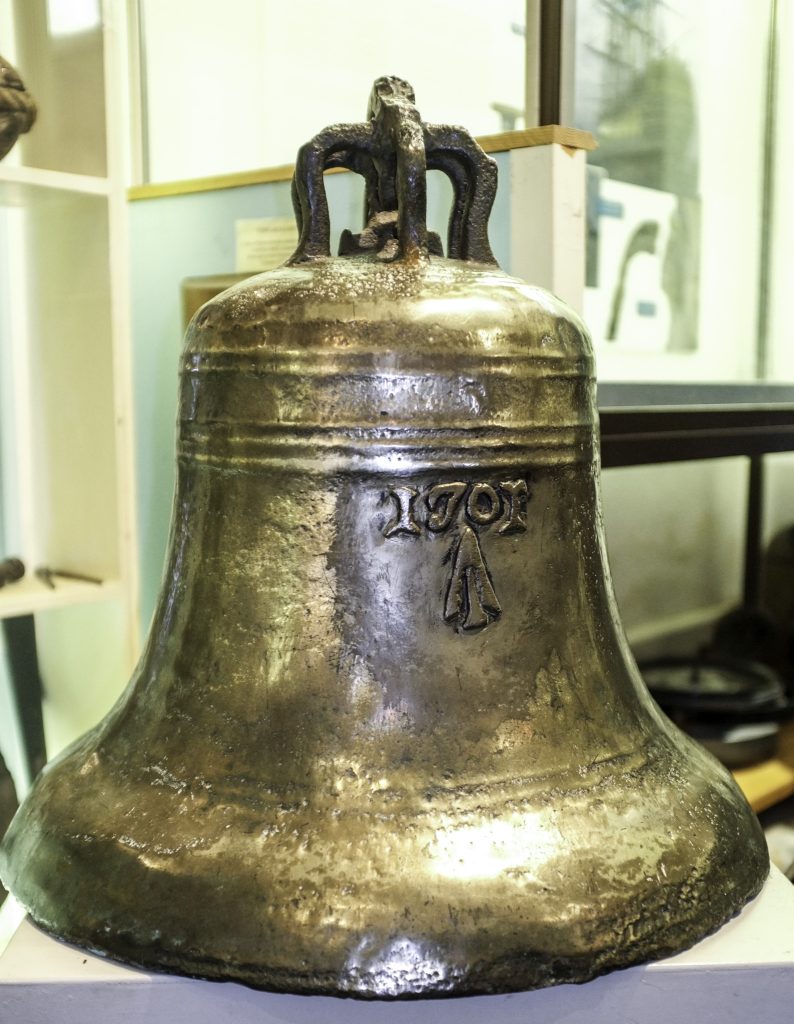
3. Broken anchor
This is part of a broken anchor. Only the arms and flukes of the anchor remain – the shank of the anchor has become detached. A detached anchor shank lies on the seabed some 15 metres to the north.
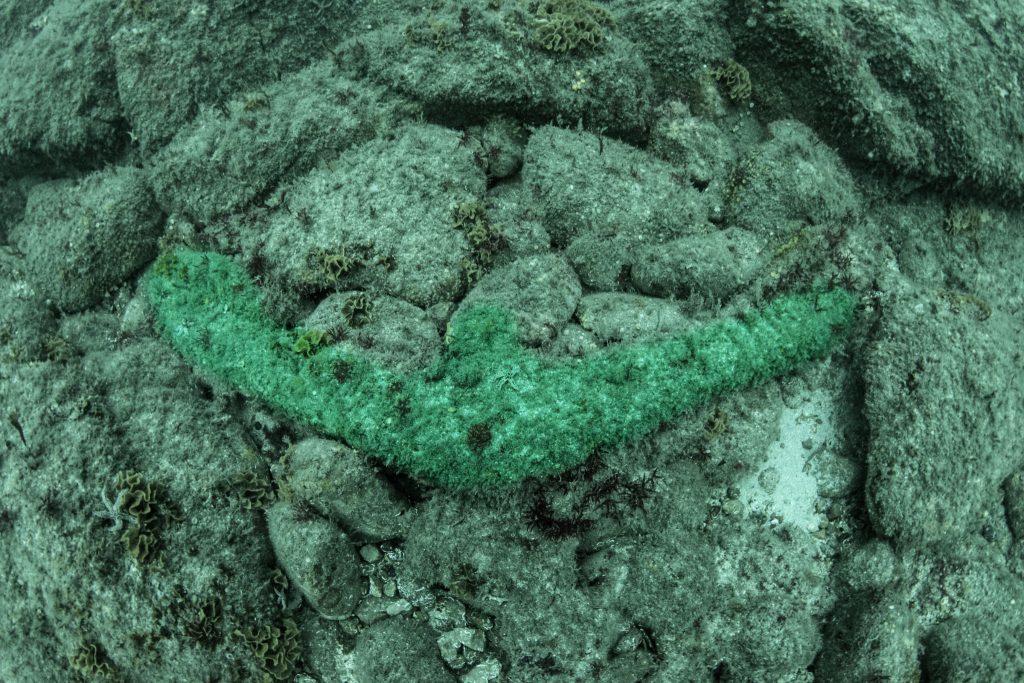
4. Group of cannon
Cast iron cannon lie in jumbled heaps over the seabed on the site. There are a total of nine guns in this cluster, which sits at the north-western edge of the site in almost 40m of water.

5. Pile of cannon
Here we can see four cast iron cannon lying in a jumbled heap. All the cannon on this site have been surveyed and measured by Peter McBride – you can read more about his work in Admiral Shovell’s Treasure by Peter McBride and Richard Larn
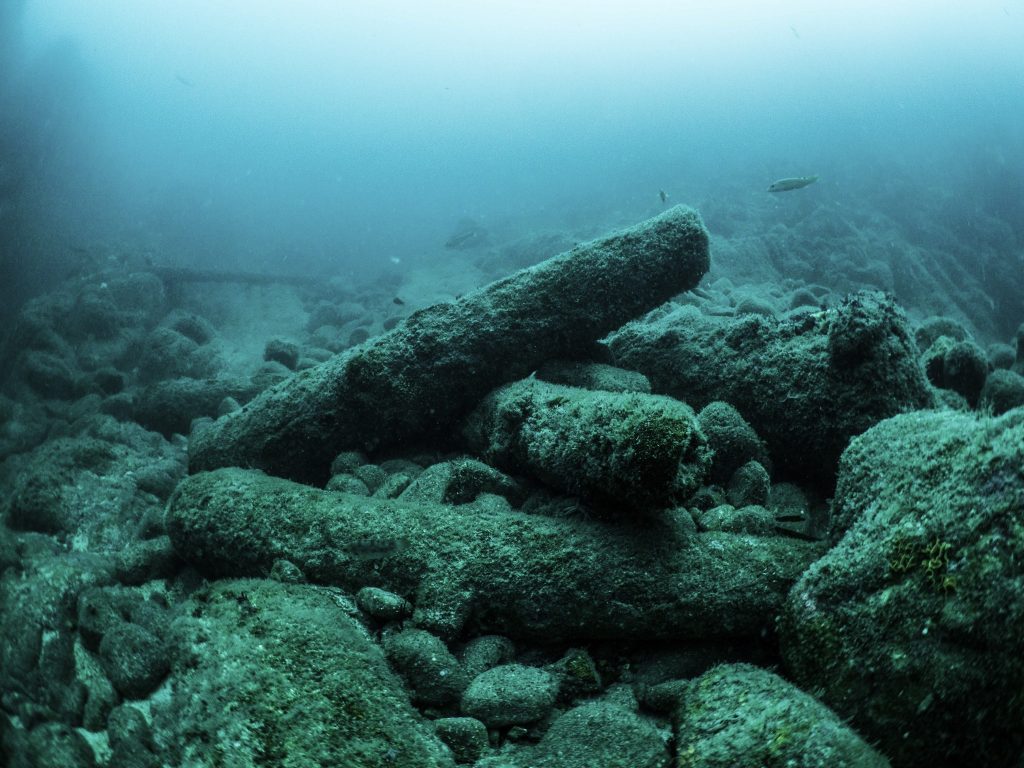
6. Large bower anchor
This large iron anchor would have been one of four bower anchors carried at the bow of the ship. This anchor is 15 ft 8 inches (4.77m) long and 10 ft 6 inches (3.2m) across the flukes. The rope tied around one of the arms of the anchor was probably used in the past by divers to mark the site. There are also numerous corroded round shot (cannon balls) scattered on the seabed around this anchor.

7. Large iron guns
This group of four iron guns are the heaviest calibre guns on the site and are 9ft 9 inches (3m) long. They were identified as 32 pound guns by Peter McBride in his survey.
8. Stern chasers
These two cannon are exceptionally long and are thought to have been used as stern chasers on the ship. Stern chasers are guns mounted at the stern, facing backwards for use in a stern chase. They are 11ft (3.3m) and 11ft 6 inches (3.5m) in length. Interestingly, they are not of the same calibre – the shorter is thought to be a 6lb gun while the longer is a 24lb gun.
9. Group of cannon
A group of cannon at the south eastern end of the wreck site.
10. Guns north of the reef
This is a group of seven guns lying on the north side of the Tearing Ledge. Two of these guns are very long (11ft 6inches) 24 lb guns which may have been the bow chasers on the ship. There are also corroded round shot (cannon balls) to be seen on this part of the site.